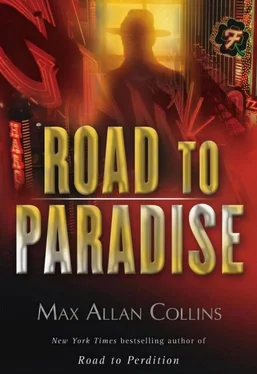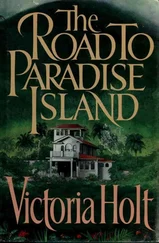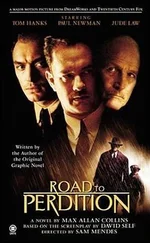Michael said nothing.
“I know you’ll want to talk to your family,” Shore said. He looked toward the kitchen, from which the fragrance of spaghetti sauce was wafting, Papa Satariano’s recipe. “Or would you like us to...?”
“No. I’ll handle it.” Michael sat forward, elbows on the arm rests, fingertips touching prayerfully. “Do you have the papers with you? That I can sign today? Tonight?”
That caught Shore off balance; he exchanged looks with Hughes, then said, “Well... yes. But I thought you... Well, yes, I can provide those papers. Certainly I can provide those papers.”
If those two killings today, self-defense or not, came to light in the next few hours, the immunity offer might be withdrawn ...
Michael stood. “You get those papers ready. I need to talk to my family.”
Shore stood, and then so did Hughes.
“Would two hours do it?” Shore asked.
“Yes.”
“I’ll be back with the papers.”
Michael pointed to the picture window, where the curtains were drawn. “In the meantime, will you leave your gardeners out there, in that panel truck, and keep an eye on this place?”
“Certainly.”
Michael turned to Hughes. “How did you boys come in?”
The marshal, gesturing, said, “Through the back door off the garage. We’ll use that again.”
“Good.” He turned to Shore. “And, Harry — one other thing...”
“Yes?”
“When does this go down? When do we leave?”
“Oh.” The question seemed to surprise Shore. “Haven’t I made that clear? Right now.”
“Tonight?”
Shore put a fatherly hand on Michael’s shoulder. “This life is over. You’re starting a new one. And the longer you give those little ladies to think about this... the worse off you, and they, will be.”
Michael shook his head. Blew air out.
“Well,” he said, “I’ll be damned.”
“Perhaps not,” Shore said, his smile a restrained one, for him, anyway. “You’ll be on the side of the angels now — see you in two hours. Pack your toothbrush.”
Book Two
Paradise of Devils
Two Months Later
The Michael Smith family of Tucson, Arizona, lived in a development known as Paradise Estates four miles southwest of the city. Theirs was one of fifty homes, red-tile-roof pueblo ranch-styles from a short list of cookie-cutter designs, each with a swimming pool and a generous lawn of Bermuda grass that required a lot of watering.
In fact, the first thing Anna had said, when they’d emerged from their new family vehicle (a wine-color Lincoln Continental), was: “Paradise Estates, huh? Paradise with crab grass.”
They had come from Tucson International Airport with only the bags they’d packed that first sudden night in Crystal Bay, having lived out of them for two weeks in various motels and one hotel, all deemed “safe” by WITSEC.
And what a surprise it was to walk into their new home and find their old furniture waiting.
Among the missing were any personal items — identification, snapshot albums, letters, bills, and no clothing other than what had been frantically packed. The furniture was arranged in essentially the same manner as in their Lake Tahoe place, including a spare bedroom that had already been set up as Michael’s study, complete with books on the shelves (missing any that had been inscribed to him as gifts). Even his precious sixteen-millimeter film collection had made the transition (though framed signed photos to him from Sinatra, Darin, Dean Martin, Shirley MacLaine, and Keely Smith had not).
Later Michael asked Harold Shore about the surprise party their old furniture and household goods had thrown for them.
“Well,” Shore said genially as they sat in the living room area of a hotel suite in Phoenix (where Michael had flown for a Sunday meeting with his federal friends), “our movers went in the morning after we took you out. They crated everything up and lugged it over to a storage facility in Reno, which we watched until we were certain no one else was... And then another set of movers hauled everything to a military base — you don’t need to know where — until finally the crates were delivered and unloaded to your new home at Paradise Estates. We even sent along a female agent to lend a woman’s touch.”
“Slick,” Michael said. “ If you weren’t followed.”
“Oh, we take great care,” the fleshy fed said, those eyes buggy behind the goggle-like black-rimmed glasses, flecks of spittle on his terrible smile. “You’re very valuable to us, Michael. We have big plans for you.”
“So does the Outfit,” Michael reminded him.
Initially the three family members had been taken to a motel near San Francisco and kept under discreet but heavy guard by that blue-eyed Apache called Hughes. Then the Satarianos — not yet Smith — were flown to Washington, DC, where the family was put up in a nice hotel, again protected by Hughes and other marshals.
Hughes made an interesting point, early on, to Michael: “Tell your family to be careful around my guys. We’re on strictly a need-to-know basis. Keep that name ‘Satariano’ to yourselves. I’m the only one privy to who you really are.”
“Thanks for the tip, Don. Don’t you trust your own people?”
“It’s not that, Michael.” The voice coming out of that sharp cheekboned face seemed genuinely concerned for the little family. “Director Shore will tell you the same — even in the OCRS, only a handful are in the know. We’re up against dangerous people. But I guess I don’t have to tell you that.”
“No. But I don’t mind hearing that you feel that way, too.”
At first, Pat and Anna just ate room service and watched television ( Days of Our Lives and Match Game among the favorites) while Michael answered question after question in Room 2730 at the Justice Department. A few days in, however, mother and daughter began working with a female agent, who briefed them about their new identities.
Standard operating procedure was that family members would retain their real first names, with a new last one providing the familiar initial. This helped prevent slip-ups, giving the rechristened Satarianos a chance to catch themselves if they started saying or writing their old names.
Or, as Anna said, “Saves on monograms.”
When Michael returned to the hotel room each evening, he, too, would study the fake backgrounds provided them. Fabrication was kept simple, just the basics, should new friends or employers or teachers or whoever ask the usual innocent questions.
The Smiths needed to know where they were from (St. Paul, Minnesota — a city none of them had ever even visited) including street address and description of home and neighborhood, also some key names (of nonexistent grandparents and real schools, including colleges for Pat and Michael).
And “Michael Smith” had to be familiar with various things about the assorted businesses he’d worked for over the years, and be aware of his undistinguished military service — he’d been stateside during WWII, a company clerk (oddly, the same fake post their son, Mike, had fooled his mother with, when he’d really been in combat).
A blond, bland, friendly OCRS agent named Michael Reddy counseled the family, individually and as a group, on various difficult aspects of the WITSEC program.
“You can’t maintain contact with any relatives or friends,” Agent Reddy said. “You’d put them — and yourself — in danger.”
“But what about when our son comes back from Vietnam?” Pat asked.
“We’ll bring you together, of course. He’ll be over twenty-one, so joining you in your new identity would have to be his own choice.”
Читать дальше











